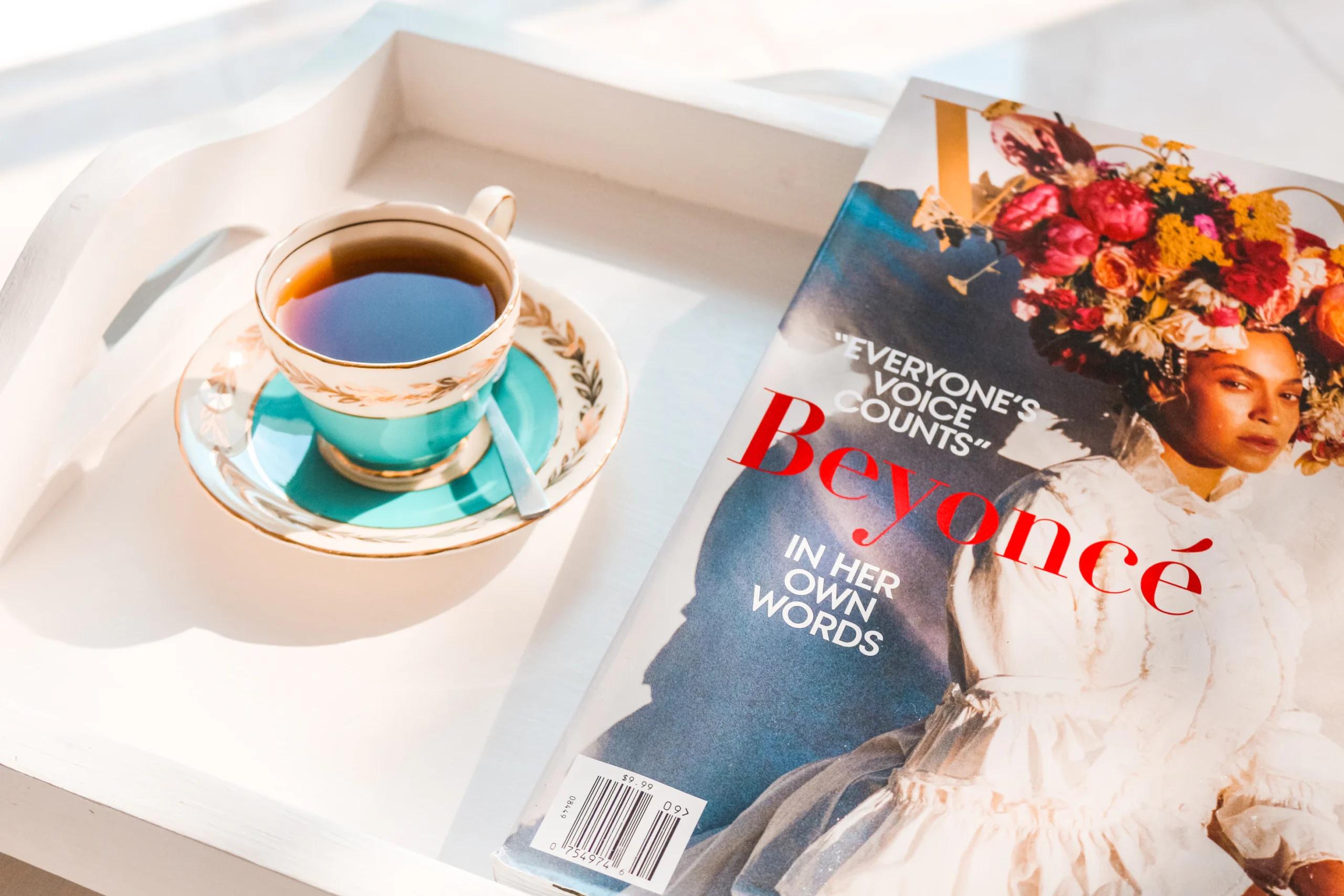“Feyonce” may have a clever ring to it, but global superstar Beyoncé is definitely not amused.
The singer is suing the people behind the apparel and merchandise company Feyonce in a Manhattan federal court for trademark infringement, trademark dilution, and unfair competition. In the complaint, she alleges that Feyonce has “willfully traded upon” her “goodwill and notoriety” by selling infringing items on their website, including t-shirts and sweatshirts emblazoned with the word “Feyonce.” They feature color pairings and a font style similar to the merchandise that Beyoncé sold on her own website during the promotional efforts for her 2013 self-titled album. For example, some of the Feyonce apparel is black with light pink writing like the album’s cover art.
One of the coffee mugs also reads “Feyonce – Put A Ring On It.” “Put a ring on it” is the exact wording of the lyrics from her quadruple-platinum 2008 hit “Single Ladies,” which is about a man being mocked for not marrying a woman he used to date when he had the chance. Beyoncé accuses the defendants of “seeking to capitalize on the notoriety” of the song.
This isn’t the first time someone has tried to use Feyonce in commerce. According to the lawsuit, the United States Patent and Trademark Office (USPTO) previously rejected the Feyonce mark for being confusingly similar to the Beyoncé mark. Last year, Beyoncé’s attorneys sent a cease-and-desist letter to a company on Etsy, the craft retail website, after mugs with Feyoncé and an engagement ring in place of the “o” were made available for sale. The mugs were also in colors similar to the self-titled album. Etsy immediately removed the online store. The defendants here are currently pursuing the registration of trademarks for Feyonce as well, with and without the accented “e.” According to the records at the USPTO, Beyoncé filed her name as a trademark for apparel and other merchandise as far back as 2000, and the mark has been registered since 2004.
Clearly, Feyonce wants consumers to make the mental connection between their wares and Beyoncé, and this suit should call to mind the “My Other Bag” case that we discussed a few months ago. My Other Bag is a company that makes affordable canvas totes featuring the designs of much more expensive luxury bags, like those made by Louis Vuitton, Hermès, and Chanel. Two years ago, the parent company to Louis Vuitton sued My Other Bag in a New York federal court for trademark infringement and dilution. Earlier this year, in a strongly-worded opinion in favor of My Other Bag, the court dismissed the claim and found that the totes amounted to parody, chastising Louis Vuitton for not just getting in on the joke. (Louis Vuitton is known to police its trademarks vigorously.)
Parody is only successful when the secondary user makes a reference to the original trademark, while also making it clear to the consumer that it is not the same thing because it is poking fun of or commenting on the original. My Other Bag’s entire business model was pointing out that the totes weren’t the luxury bags depicted on them—as if to say, “My other bag is the more expensive one.” It was a comment on materialism and the need to have others know that one owns pricey items, thought the court.

Where creative minds come together
Feyonce certainly references Beyoncé’s mark, but does it meet the second—and arguably more important—part of parody? Is Feyonce a comment on modern marriage or dating, if it’s parodying “Single Ladies”? And how? These are questions that the defendants will likely have to answer if they plan to fight the suit, and choose to go the parody route. In light of New York’s rich case law history with trademark dilution claims, this is certainly one to watch play out.
For more information on trademarks and how to protect yours, please contact The Fried Firm.



